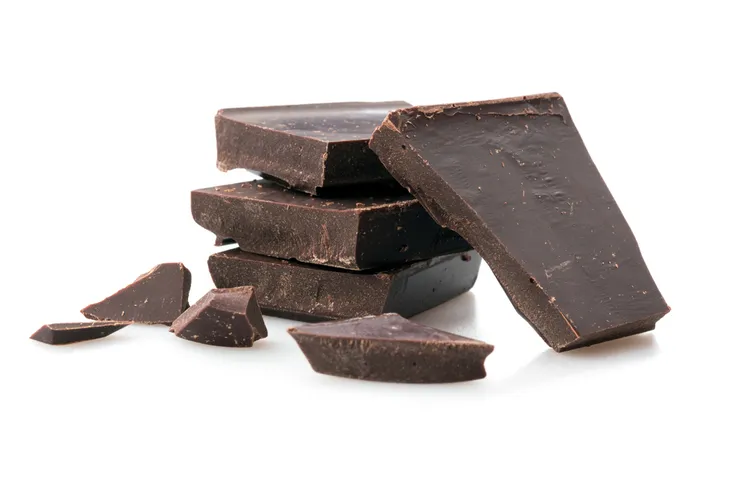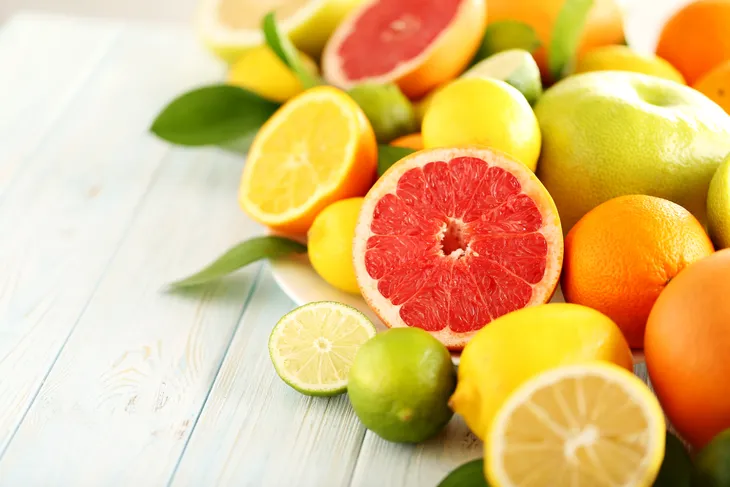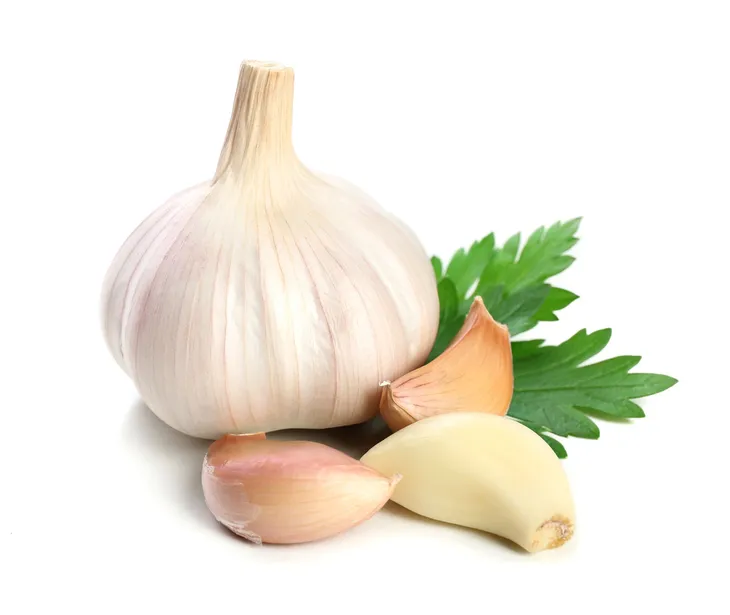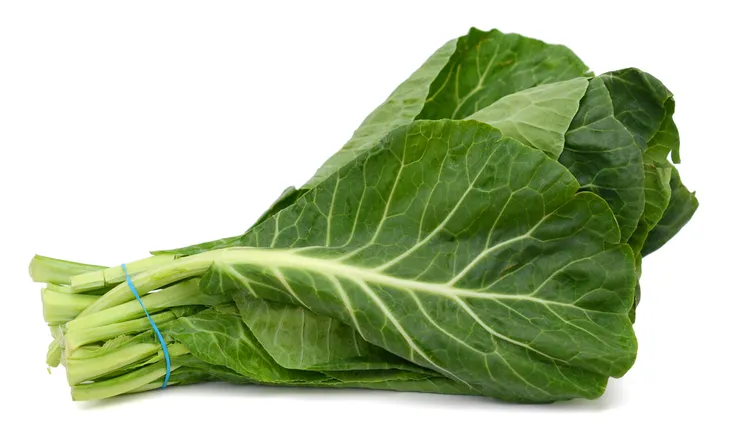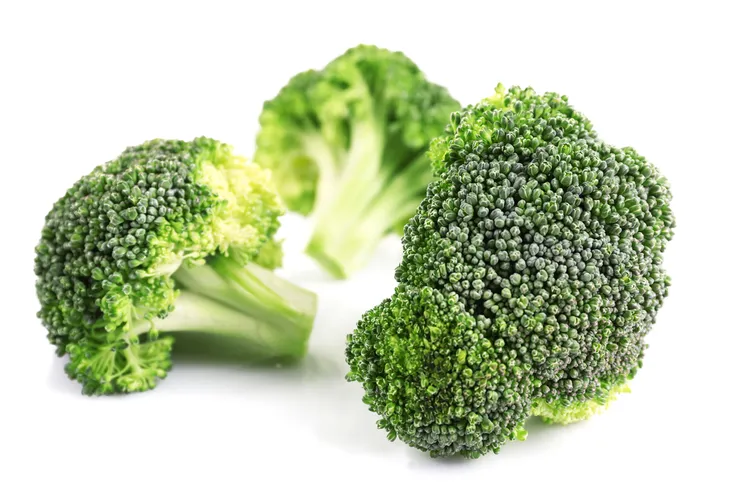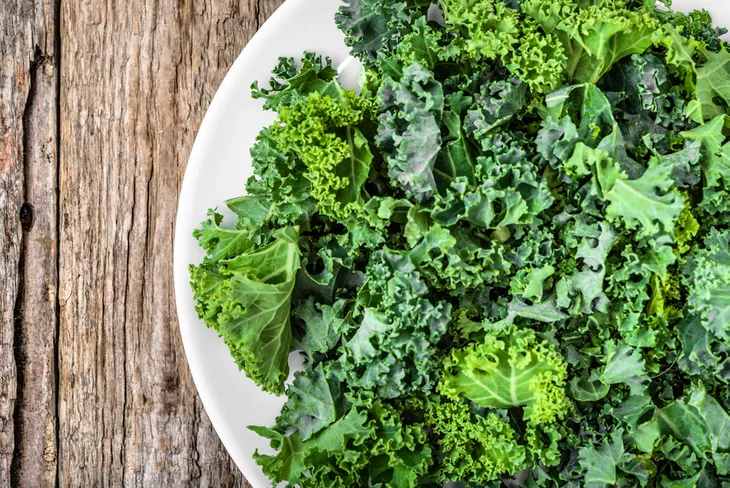If you suffer from spring allergies, worse spring allergies than in years before, Rodale Wellness says you can blame climate change, which results in increased carbon dioxide in the atmosphere means more allergens (i.e., pollen). In fact, experts from the American College of Allergy, Asthma and Immunology seasons say that will warmer weather, seasons are getting longer, which means more CO2 and stronger pollen strains that stick around for a lot longer.
So if you suffer from seasonal allergies, like I do, you may find solace in your diet with foods that can help remedy allergic reactions and inflammation…
Want diet & nutrition content delivered straight to your inbox? Sign up for our exclusive diet & nutrition newsletter!
1. Chocolate
You likely have a sweet tooth (and who doesn’t love chocolate?) if you gave a little cheer at the thought of munching on chocolate to soothe your seasonal allergies.
However, it’s the cocoa, which is derived from dried and fully fermented cocoa plant seeds and extracted to make cocoa solids and cocoa butter, that harbors anti-allergenic benefits. In fact, this 2013 study published by the National Institutes of Health notes that the rich polyphenols in cocoa make it a potent antioxidant and potential anti-allergen.
2. Citrus
Research from University of California, Los Angeles (UCLA) Integrative Medicine notes that increasing the vitamin C in your diet can provide some respite for seasonal allergy sufferers. UCLA notes that foods rich in the antioxidant vitamin C work to counteract histamine, which triggers inflammation and common allergy symptoms (i.e., sneezing, congestion, runny nose, itchy throat, etc.).
Citrus fruits, in particular, strawberries, oranges, lemons, limes, and grapefruit contain between 60-milligrams and 100-milligrams of vitamin C per fruit. For allergy fighting benefits, you should aim for 500-milligrams of vitamin C a day from whole food sources.
3. Garlic and Onions
Now, first let me say that Shape Magazine wouldn’t dream of telling you to scare away any potential suitors come spring. However, the magazine recommends eating garlic and onions (and popping a breath mint afterwards) to fight off annoying seasonal allergy symptoms.
Both garlic and onions are packed with a natural antihistamine in quercetin. This powerful antioxidant can stop the cellular release of histamine. And if you absolutely abhor garlic and onions, try munching on an apple, which also contains it’s fair share of quercetin.
4. Collard Greens
Research published by Women’s Health magazine says that a plate piled high with collard greens can lessen the symptoms of spring and fall hay fever. How so? Well, according to the magazine, collard greens are rich in powerful phyto-chemicals—or carotenoids—that provide allergy relief.
This is the case with many types of leafy greens, like collard greens and kale. However, keep in mind that the darker the leaves equals more carotenoid power. And thankfully, collard greens are so versatile—they make a nice addition to stir fries, soups, stews, and casseroles when lightly steamed with a healthy fat source (i.e., olive oil).
5. Broccoli
Similar to fruits rich in the antioxidant vitamin C (i.e., lemons, oranges, grapefruit, and strawberries), vegetables rich in vitamin C, such as broccoli, also harbor allergy-fighting super powers. Luckily a cup of raw broccoli contains about 80-milligrams of the 500-milligrams needed daily to blast those seasonal allergies away.
Also, you’ll find that broccoli also has another allergy-eradicating bonus! This veggie comes from the crucifer family of plants (including Brussels sprouts, cabbage, cauliflower, kohlrabi, and bok choy) and is considered an ally to blocked sinuses everywhere, according to research from Oregon State University’s Linus Pauling Institute of Micronutrient Information.
6. Kale
Akin to collard greens, kale is considered a close relative and allergy-fighting superfood by MedicalNewsToday.com. In fact, the dark, leafy green superfood boasts several asthma and allergy-fighting super powers. Firstly, kale is rich in carotenoids, those wonderful phyto-chemicals that lower allergy symptoms.
Secondly, research also shows that kale is loaded with vitamin C. In fact, compared to spinach, a single cup of cooked kale contains 1000-percent more vitamin C! Take that Popeye!
7. Pineapple
If the first buds of spring usher in months of sneezing, stuffy nose, and an itchy, scratchy throat you may find solace in the tropics. By that I’m referring to sweet, juicy pineapple. According to a 2012 study from the Alternative Therapies in Health and Medicine journal, pineapple is rich in an allergy-fighting component known as bromelain.
The study credits this powerful anti-inflammatory enzyme with sneeze guard capabilities, meaning it lessened airway inflammation and stuffed sinuses in mice. Keep in mind that pineapple also contains a decent dose of vitamin C.
8. Red Grapes
Ohhh, I saved the best one for last. I love any reason to drink a glass of red wine on my back porch. Thankfully, red grapes (which make red wine) contain a powerful anti-allergy punch in resveratrol.
According to a 2013 study featured in the Journal of Nutrition, this potent polyphenolic compound reduced the IgE (or affects of the immunoglobulin E antibody) allergic response in lab mice. Of course, if you’re not a wine lover like me, you can always enjoy a big bowl of red grapes.

